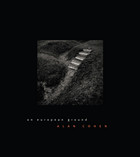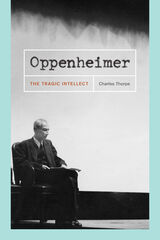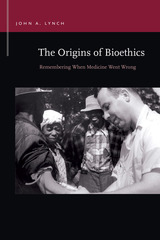7 start with O start with O

Cohen's images achieve a solemn beauty even as they engage history at its most topical. Pictures of trenches and bunkers at the battlefields of Somme and Verdun explore the tension between the violence of the past and the inscrutability of its remnants. Photographs from the grounds of Dachau and Auschwitz solicit a provocative dialogue between the ordinariness of these sites today and their haunting memory. They teach us, as the New Art Examiner notes, "that the living perceptual connection to the Holocaust is vanishing." Images of the Berlin Wall show only the footprint of the barricade that once separated two hostile ideologies. They record the physical erosion and looming disappearance of the Wall while capturing its reappearance as a memorialized abstraction.
Accompanying the photographs in On European Ground are essays by Sander Gilman and Jonathan Bordo, as well as an interview with Cohen by critic Roberta Smith of the New York Times. The essays present both an introduction to and aesthetic analysis of Cohen's work, while the interview discusses the intractable problems of history and memory that his photographs so uniquely capture.


Nearly 120,000 people are in need of healthy organs in the United States. Every ten minutes a new name is added to the list, while on average twenty people die each day waiting for an organ to become available. Worse, our traditional reliance on cadaveric organ donation is becoming increasingly insufficient, and in recent years there has been a decline in the number of living donors as well as in the percentage of living donors relative to overall kidney donors. Some transplant surgeons and policy advocates have responded to this shortage by arguing for the legalization of the sale of organs among living donors. Andrew Flescher objects to this approach by going beyond concerns traditionally cited about social justice, commodification, and patient safety, and moving squarely onto the terrain of discussing what motivates major and costly acts of human selflessness.
What is the most efficacious means of attracting prospective living kidney donors? Flescher, drawing on literature in the fields of moral psychology and economics, as well as on scores of interviews with living donors, suggests that inculcating a sense of altruism and civic duty is a more effective means of increasing donor participation than the resort to financial incentives. He encourages individuals to spend time with patients on dialysis in order to become acquainted with their plight and, as an alternative to lump-sum payments, consider innovative solutions that positively impact living donor participation that do not undermine the spirit of the National Organ Transplant Act of 1984. This book not only re-examines the important debate over whether to allow the sale of organs; it is also the first volume in the field to take a close look at alternative solutions to the organ shortage crisis.

A June 1988 symposium at Vanderbilt University gathered leaders in a wide variety of fields to synthesize the current state of knowledge concerning organ transplantation policy and to access policy options. Collected here are the revised papers presented at that symposium; also included is one influential earlier paper on the same topic. Together, they constitute a major contribution to the debate on organ transplantation policy and its moral, legal, financial, and political implications.



READERS
Browse our collection.
PUBLISHERS
See BiblioVault's publisher services.
STUDENT SERVICES
Files for college accessibility offices.
UChicago Accessibility Resources
home | accessibility | search | about | contact us
BiblioVault ® 2001 - 2024
The University of Chicago Press









